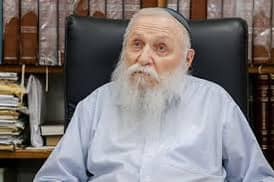How and When to Remember Rav Druckman

In the days since Rav Druckman’s passing, there has been intense debate as to whether remembrances in the immediate aftermath of his death should mention his mishandling of the abuse charges against Zev Kopilevich and his championing and attempts to rehabilitate Moti Elon.
Some argue that we do not honestly capture the rabbi’s legacy if do do not insist on mentioning his support for sex offenders. Others insist that the immediate aftermath of someone’s passing is not the time to mention his misdeeds, and that the totality of Rav Druckman’s legacy should be told in stages over time.
This is not a singular phenomenon. In an age of rabbinic scandals, the larger question as to how to respond to the death of religious leaders with mixed legacies is sadly all too common. Nor is this challenge limited to Jewish leaders. Those remembering the former Pope Benedict XVI, who passed away today and who has been sharply criticized for his handling of the Church abuse scandal, are presently debating a parallel problem.
While there is no single set of criteria we can offer to resolve all instances of the question of how to remember an outstanding leader who sinned egregiously, I do believe there is an important distinction to be drawn between those whose major shortcomings were bein adam la-makom versus bein adam la-chaveiro.
In the former case, my instinct is that it is fair to assume that so long as the full story is told in its due time, we should not be concerned that Hashem will be “personally offended” by these different stages of remembrance. In such a case, all things beings equal, waiting until, say, after shiva to recount the leader’s shortcomings seems more appropriate.
In the case of bein adam lachaveiro, particularly in cases of abuse, by contrast, we know that victims are revictimized each time they are reminded of their suffering. Thus, if immediate remembrances are purely positive, victims are more likely to suffer than if there were a major asterisk explicitly attached to the positive remembrances of a leading rabbi or religious leader who passed away.
Therefore, my feeling is that Rav Druckman’s mixed legacy should not be presented in stages, but instead that his many important accomplishments must be accompanied from the outset by an honest recounting of the pernicious ways he covered for abusers both in his own Yeshiva system and more broadly in the Dati Leumi community. The same holds for Pope Benedict.
May we merit more innocent times when we need not be so self-conscious about how and when we remember our spiritual leaders...
